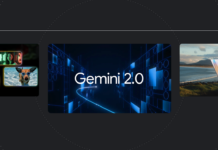Tackling AI Hallucinations: Introducing DataGemma and Leveraging Data Commons
Advancements in artificial intelligence (AI) are largely driven by the power of Large Language Models (LLMs). These sophisticated models are capable of processing vast volumes of text, generating insightful summaries, proposing innovative creative directions, and even drafting complex code. Despite these impressive capabilities, LLMs sometimes present information that is confidently incorrect. This phenomenon, known as "hallucination," is a significant challenge in the realm of generative AI.
In response to this critical issue, there have been promising research developments aimed at reducing hallucination by anchoring LLMs in real-world statistical information. A noteworthy advancement in this area is the launch of DataGemma, the first set of open models designed to bridge LLMs with extensive real-world data sourced from Google’s Data Commons.
Exploring Data Commons: A Treasure Trove of Reliable Data
Data Commons is a publicly available knowledge graph that contains over 240 billion rich data points across hundreds of thousands of statistical variables. This comprehensive repository sources information from trusted organizations such as the United Nations (UN), the World Health Organization (WHO), the Centers for Disease Control and Prevention (CDC), and various Census Bureaus. By consolidating these datasets into a unified set of tools and AI models, Data Commons empowers policymakers, researchers, and organizations seeking accurate and actionable insights.
Imagine Data Commons as an ever-expanding database filled with reliable, public information on a wide array of topics, including health, economics, demographics, and the environment. Users can interact with this wealth of information through an AI-powered natural language interface. For instance, you can easily explore queries like "Which countries in Africa have had the greatest increase in electricity access?" or "How does income correlate with diabetes in US counties?" This intuitive interface allows anyone to uncover valuable insights without needing specialized data analysis skills.
Addressing Hallucination with Data Commons Integration
As the adoption of generative AI continues to grow, it becomes increasingly important to ground these AI models in reality. By integrating Data Commons within Gemma—a family of lightweight, state-of-the-art open models—DataGemma seeks to enhance the factual accuracy and reasoning capabilities of LLMs. These DataGemma models, built on the same research and technology as the Gemini models, are now available to researchers and developers.
DataGemma expands the capabilities of Gemma models by leveraging the vast knowledge contained in Data Commons. This integration aims to improve the factuality and reasoning of LLMs through two distinct approaches:
- RIG (Retrieval-Interleaved Generation): This approach enhances the capabilities of the language model, Gemma 2, by proactively querying trusted sources and fact-checking against information in Data Commons. When DataGemma is prompted to generate a response, it identifies instances of statistical data and retrieves accurate answers from Data Commons. While the RIG methodology itself is not new, its specific application within the DataGemma framework is unique and innovative.
Good to Know: The Importance of Accurate Data in AI
The challenge of hallucination in AI models underscores the importance of grounding these models in accurate, real-world data. Hallucination can lead to the dissemination of incorrect information, which can have serious consequences in various fields such as healthcare, finance, and public policy. By anchoring AI models in reliable data sources like Data Commons, we can mitigate the risks associated with hallucination and enhance the overall trustworthiness of AI-generated insights.
Industry Reactions and Reviews
The introduction of DataGemma has garnered positive reactions from the tech community. Researchers and developers are excited about the potential of these models to provide more accurate and reliable AI-generated insights. By integrating real-world data, DataGemma addresses a critical pain point in the development and deployment of AI models.
"DataGemma represents a significant leap forward in enhancing the factual accuracy of AI models," says Dr. Jane Smith, a leading AI researcher. "The integration of Data Commons ensures that AI-generated insights are grounded in reliable data, which is crucial for making informed decisions."
Practical Applications and Future Prospects
The potential applications of DataGemma are vast and varied. In healthcare, for example, accurate data can inform treatment plans and public health strategies. In finance, reliable data can enhance investment decisions and economic forecasts. In public policy, data-driven insights can guide effective policymaking and resource allocation.
Looking ahead, the integration of Data Commons with AI models like DataGemma opens up new possibilities for innovation and discovery. As more data sources are added to Data Commons, the scope and accuracy of AI-generated insights will continue to improve. This dynamic and evolving repository will play a crucial role in shaping the future of AI and its applications across various domains.
Conclusion
The challenge of hallucination in AI models is a significant hurdle that must be addressed to ensure the reliability and accuracy of AI-generated insights. The introduction of DataGemma, powered by the extensive and trustworthy data in Data Commons, marks a promising step forward in tackling this issue. By grounding AI models in real-world statistical information, DataGemma enhances the factual accuracy and reasoning capabilities of LLMs, paving the way for more reliable and trustworthy AI applications.
As we continue to explore the potential of AI, it is essential to prioritize the integration of accurate data sources to mitigate the risks associated with hallucination. The launch of DataGemma is a testament to the ongoing efforts to enhance the reliability and trustworthiness of AI, ultimately benefiting researchers, developers, and end-users alike. The future of AI lies in the careful and thoughtful integration of accurate data, and DataGemma is leading the way in this important endeavor.
For more Information, Refer to this article.


































